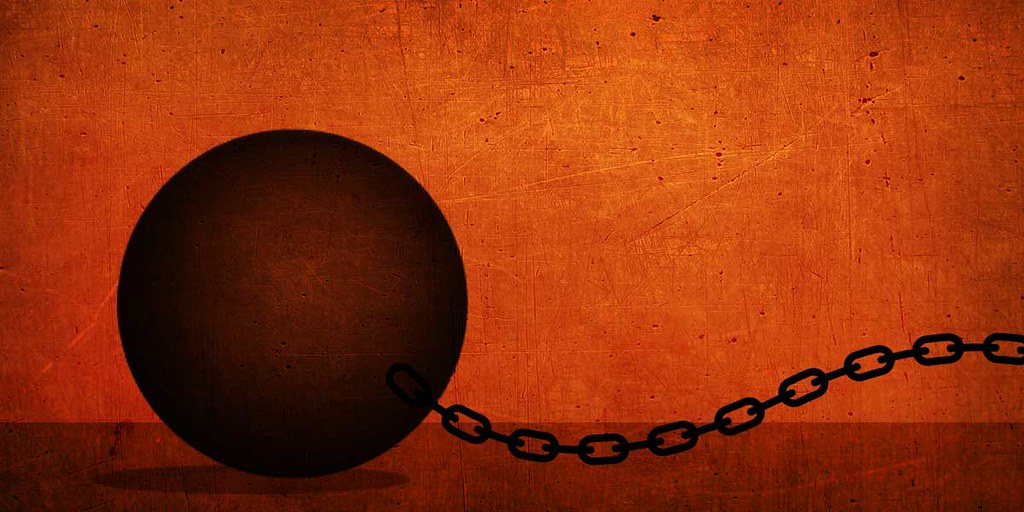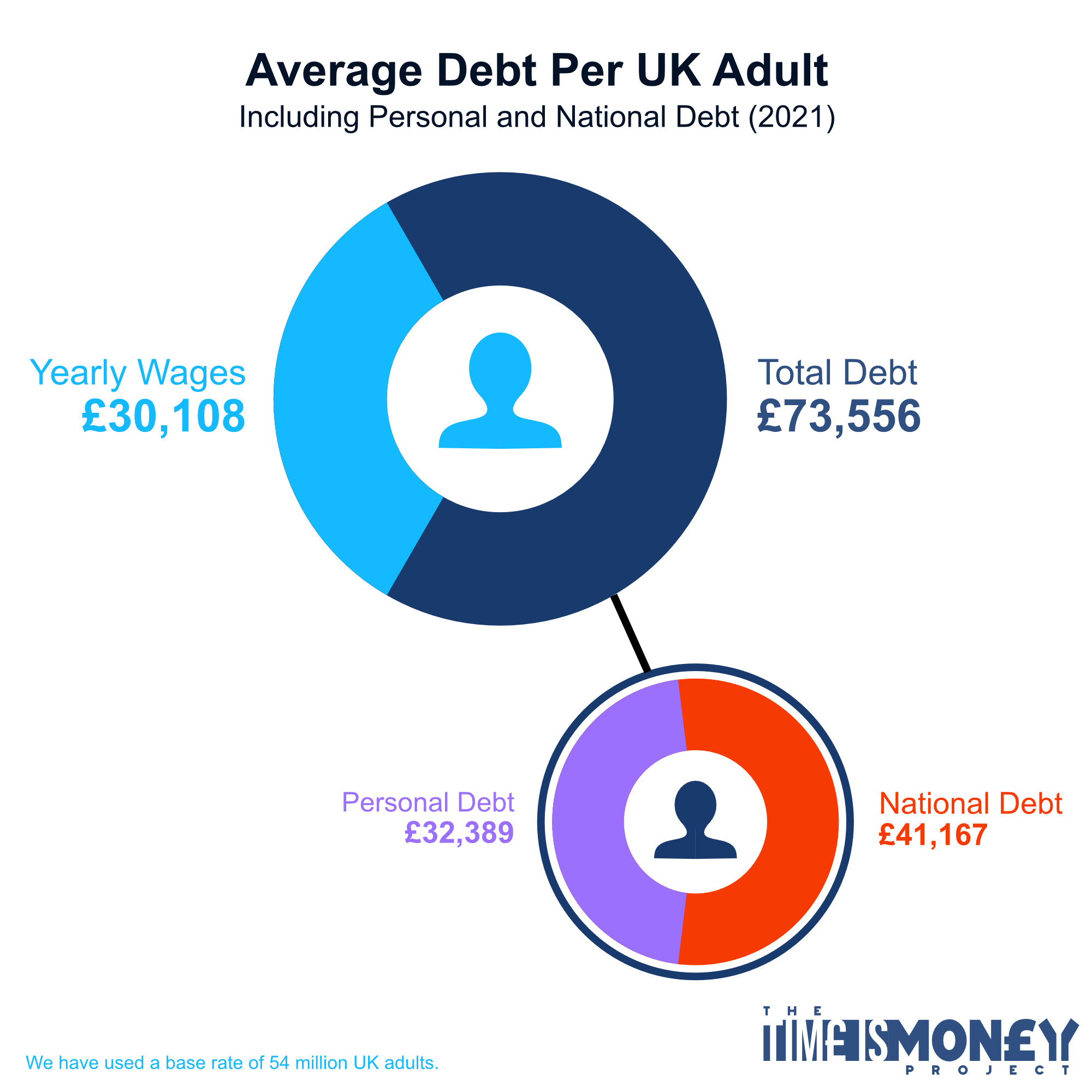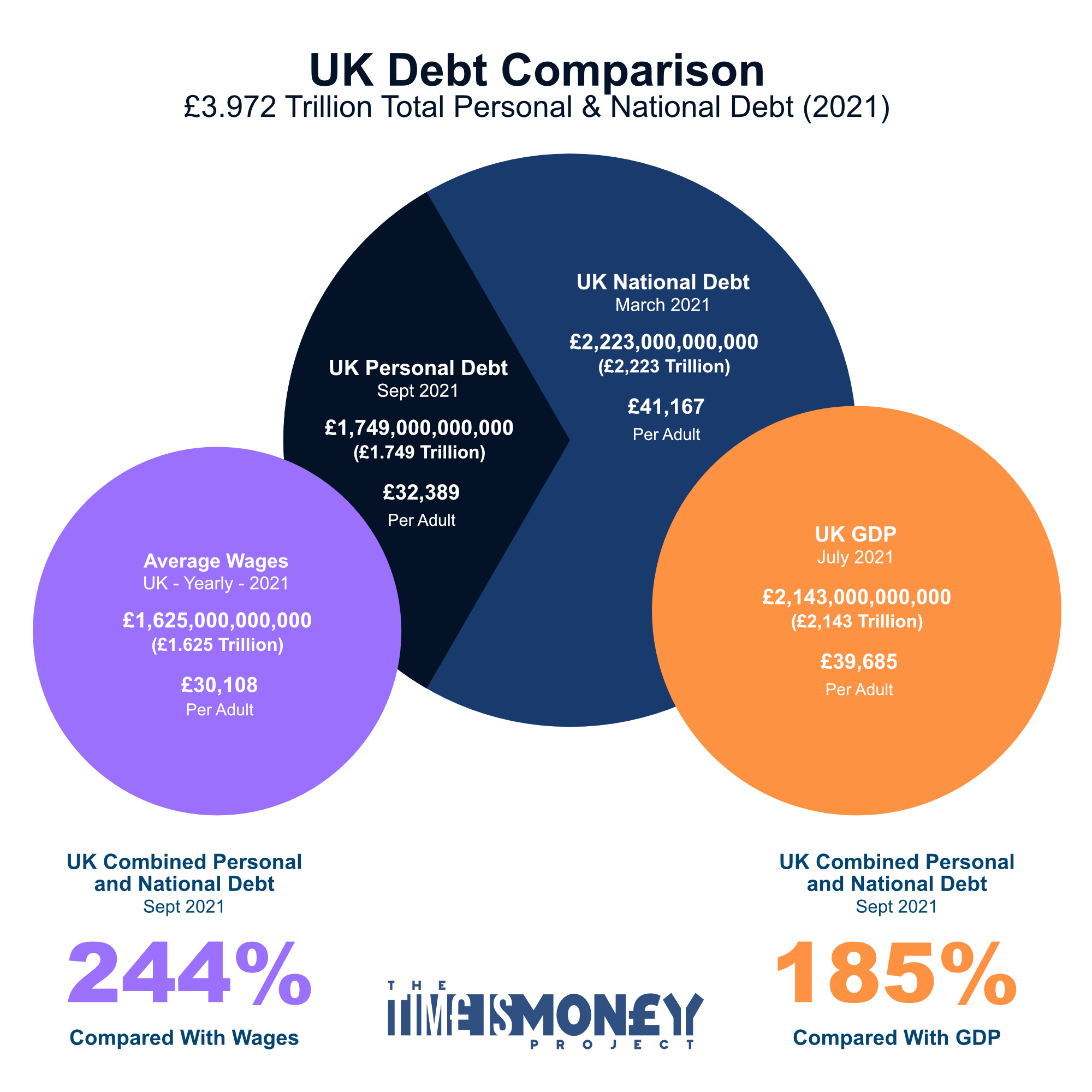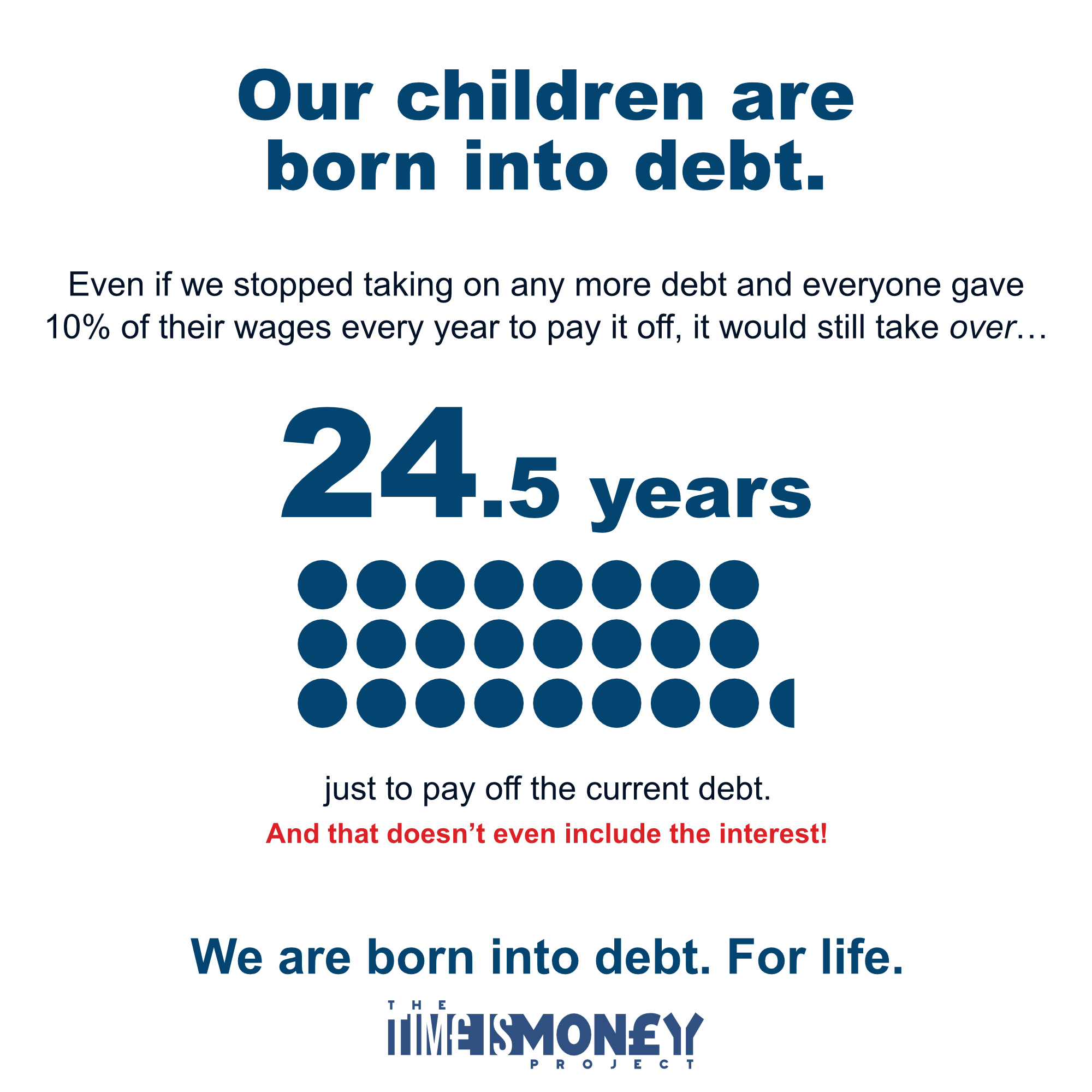

2021
Eternal Debt
If debt is increasing, it is not being paid off.
When it comes to population size numbers, they can appear daunting. But by simply dividing them up to a per person average, we can see just how gargantuan the burden of debt is among each and every one of us within society.

Whether we compare the debt to GDP or against wages, the debt is always far greater.

And if we look at whether this debt will ever realistically be paid off, well, it seems highly unlikely. Especially when you start to add other real-world inputs, such as the added interest, business debt, bankruptcy and defaults, the aging population, and the fact that the debt level is increasing.
If debt is increasing, it is because people cannot afford the things they are buying. If they can't afford the things they are buying, they haven't got any spare money to pay off the debt. So they pay the interest and take on more debt to get by. This goes the same way for the government. Without a plan to increase GDP and wages dramatically, any debt taken on isn't going to be paid off.
This vicious cycle has been around for hundreds of years and it isn't going anywhere anytime soon. The UK government has been in debt, continuously without interruption, for HUNDREDS OF YEARS.
When the total debt is greater than both GDP and wages, the society is built on debt.

The black hole of debt will likely do what black holes do; suck everything into itself, and turn it into something which is unrecognisable to space and time and no longer any use to anyone.
When total debt is increasing, it is not being paid off.
We live in a society that has been perpetually in debt for hundreds of years.
We are forever in debt.

